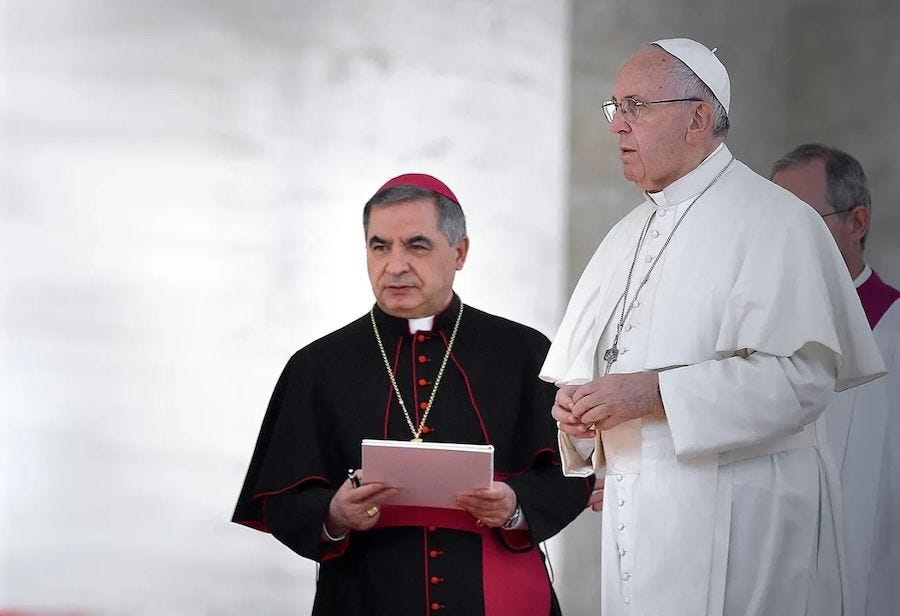Has Pope Francis denied Cardinal Becciu due process?
Did Becciu - and the 'Demos' memo - get Francis right?
In the Vatican City’s courtroom last week, Cardinal Angelo Becciu said he had complained to Pope Francis; the cardinal claimed the pontiff had meddled in the criminal case against him, and shown “solidarity” with his accusers.
Becciu is not the first to accuse Francis of interfering with the Vatican’s judicial process, or of taking a casual attitude towa…

